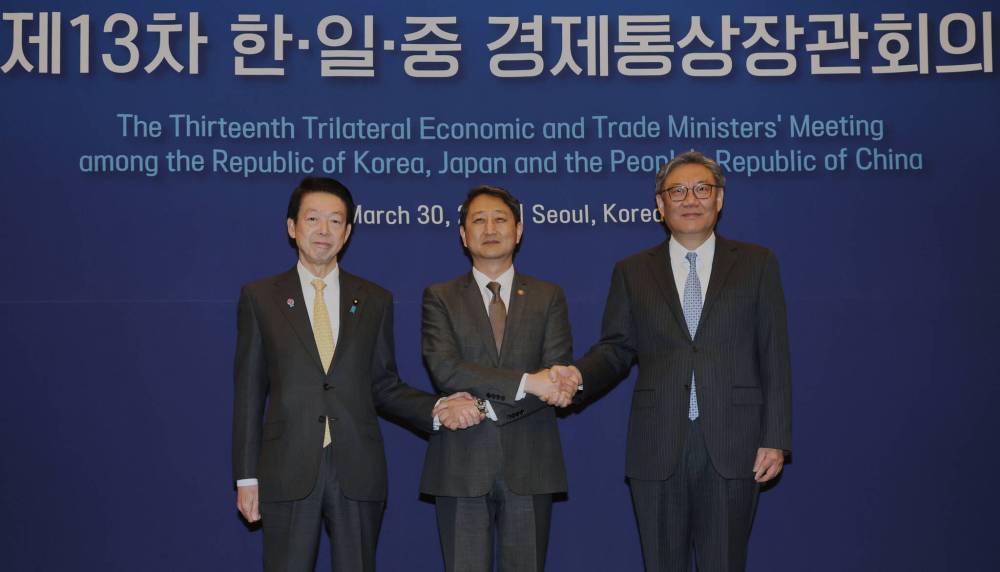America may be quickly left behind economic barriers it builds
Advertisement
Read this article for free:
or
Already have an account? Log in here »
To continue reading, please subscribe:
Monthly Digital Subscription
$0 for the first 4 weeks*
- Enjoy unlimited reading on winnipegfreepress.com
- Read the E-Edition, our digital replica newspaper
- Access News Break, our award-winning app
- Play interactive puzzles
*No charge for 4 weeks then price increases to the regular rate of $19.00 plus GST every four weeks. Offer available to new and qualified returning subscribers only. Cancel any time.
Monthly Digital Subscription
$4.75/week*
- Enjoy unlimited reading on winnipegfreepress.com
- Read the E-Edition, our digital replica newspaper
- Access News Break, our award-winning app
- Play interactive puzzles
*Billed as $19 plus GST every four weeks. Cancel any time.
To continue reading, please subscribe:
Add Free Press access to your Brandon Sun subscription for only an additional
$1 for the first 4 weeks*
*Your next subscription payment will increase by $1.00 and you will be charged $16.99 plus GST for four weeks. After four weeks, your payment will increase to $23.99 plus GST every four weeks.
Read unlimited articles for free today:
or
Already have an account? Log in here »
Hey there, time traveller!
This article was published 05/04/2025 (237 days ago), so information in it may no longer be current.
Imagine your response to an acquaintance from a far-off land knocking on your door and saying: “That’s a nice rock you have in your backyard. I want to buy it from you.”
The encounter continues: “What? It’s not for sale? Well then, I’m just going to take it, because I’m sure that rock would rather be in my backyard than yours.”
And as they turn to walk away, they look back and say: “Oh and by the way, can you spare any eggs?”

That’s the position Denmark faced a few weeks ago — and the situation much of the globe is in this week — as the U.S. under President Donald Trump attempts to re-order the world.
Amidst the Trump administration’s sabre-rattling over annexing Greenland, the Danish Egg Association was among several European agencies that received letters from American officials asking if they would consider exporting eggs to the U.S. — which is another way of saying “We’d like to buy some.”
The answer was polite, but “nej” (no).
U.S. eggs cost as much as US$10 a dozen right now — if consumers can find any on grocery store shelves. Notably, these shortages, a result of avian influenza outbreaks in poultry farms, were unfolding before the 2024 election.
But the scenario exposes the perverse logic behind the U.S. administration’s view of global relations.
Trump and his tariff warriors see imports and trade deficits as other countries taking advantage of the U.S., while ignoring the fact Americans want most of the stuff coming into their stores.
Trump’s announcement of sweeping tariffs this week was about, as he termed it, making other countries “pay for the privilege to access our market.”
This may have come as a surprise to the penguins, the only inhabitants of Antarctica’s Heard Island and McDonald Islands, which are now assessed with 10 per cent tariffs along with a few other places most Americans have never heard of, much less bought anything from.
The world’s farmers aren’t force-feeding American consumers year-round access to fresh fruits and vegetables. Trade enabled a more nutritious diet for consumers and at affordable prices — until last week.
American cereal processors seek Canadian oats because U.S. farmers find it more rewarding to grow corn and soybeans. They import wheat from Canada to blend-up lower-quality American varieties to improve baked goods. Livestock born in Canada are fed and slaughtered in the U.S. and the meat sold back to Canada.
Canadian food-processing jobs have been slowly trickling south for generations. Trump’s antics could and should reverse that trend.
It would be a mistake for Canadian farmers to believe Trump’s last-minute decision this week to respect the North American trade treaty spares Canada’s food sector from harm.
The same week Trump announced his “pay to play” tariffs, U.S. Secretary of Agriculture Brooke Rollins announced she’s hitting the road with an “aggressive international travel agenda” to increase sales of America’s agricultural exports. Many of the countries on her hit list are key Canadian customers.
The U.S. is tying relief from newly imposed tariffs to increased purchases of American commodities.
In past trade wars, Canadian crop exporters held onto their global market share by competing on price while counting on their reputation as reliable suppliers of consistent high quality. It was costly at the farmgate, but it maintained important trading relationships.
The U.S. has set itself up for an administrative nightmare enforcing its country-by-country tariffs. Tariff wars invariably lead to tariff games, in which countries with lower tariff regimes become a backdoor entry into the U.S. for products with ingredients from countries assessed with higher tariffs.
The rest of the world is moving quickly to retaliate while simultaneously looking for ways to reduce its exposure to Trump’s bullyboy tactics. Symbolic of this was a photo released this week depicting trade ministers from South Korea, Japan and China standing united with joined hands over a renewed commitment to align on trade.
Trump has described April 2 as the day America declared its “economic independence” from the rest of the world. Another word for it comes to mind: isolation.
Laura Rance is executive editor, production content lead for Glacier FarmMedia. She can be reached at lrance@farmmedia.com

Laura Rance is editorial director at Farm Business Communications.
Our newsroom depends on a growing audience of readers to power our journalism. If you are not a paid reader, please consider becoming a subscriber.
Our newsroom depends on its audience of readers to power our journalism. Thank you for your support.


